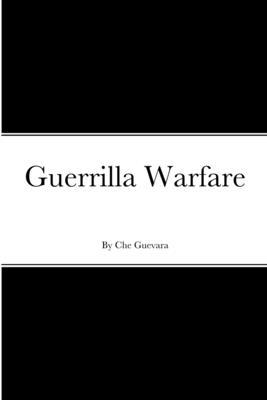Guerrilla Warfare (Spanish: La Guerra de Guerrillas) is a military handbook written by Marxist-Leninist revolutionary Che Guevara. Published in 1961 following the Cuban Revolution, it became a reference for thousands of guerrilla fighters in various countries around the world. The book draws upon Guevara's personal experience as a guerrilla soldier during the Cuban Revolution, generalizing for readers who would undertake guerrilla warfare in their own countries. The book identifies reasons for, prerequisites, and lessons of guerrilla warfare. The principal reason to conduct guerrilla warfare within a country is because all peaceful and legal means of recourse have been exhausted. The most important prerequisite for conducting guerrilla warfare in a country is the popular support of its people for the guerrilla army. Che asserted that the success of the Cuban Revolution provided three lessons: popular forces can win a war against a regular army, guerrillas can create their own favorable conditions (not needing to wait for ideal conditions to take shape), and in underdeveloped America, the basic place of operation for a guerrilla army is the countryside.

Guerrilla Warfare (Spanish: La Guerra de Guerrillas) is a military handbook written by Marxist-Leninist revolutionary Che Guevara. Published in 1961 following the Cuban Revolution, it became a reference for thousands of guerrilla fighters in various countries around the world. The book draws upon Guevara's personal experience as a guerrilla soldier during the Cuban Revolution, generalizing for readers who would undertake guerrilla warfare in their own countries. The book identifies reasons for, prerequisites, and lessons of guerrilla warfare. The principal reason to conduct guerrilla warfare within a country is because all peaceful and legal means of recourse have been exhausted. The most important prerequisite for conducting guerrilla warfare in a country is the popular support of its people for the guerrilla army. Che asserted that the success of the Cuban Revolution provided three lessons: popular forces can win a war against a regular army, guerrillas can create their own favorable conditions (not needing to wait for ideal conditions to take shape), and in underdeveloped America, the basic place of operation for a guerrilla army is the countryside.